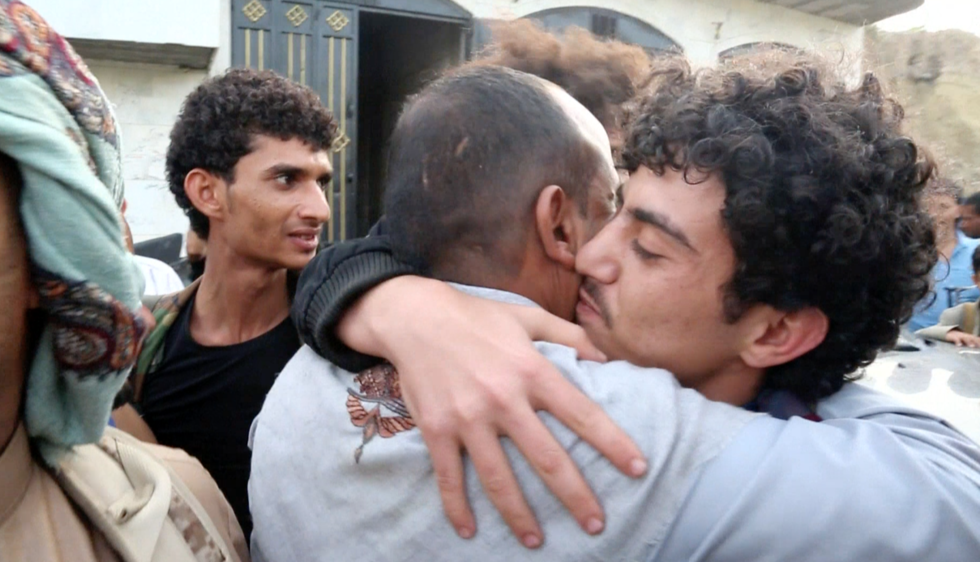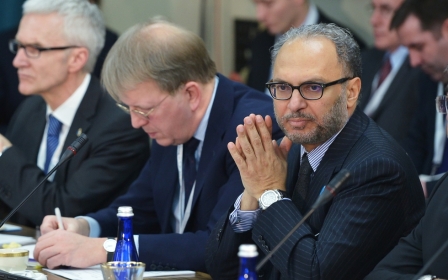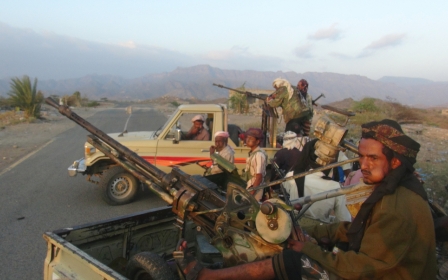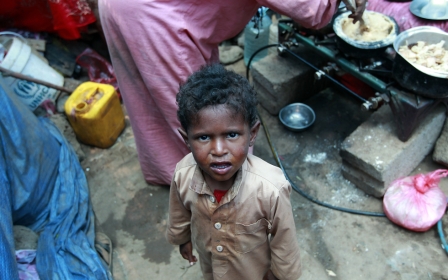WATCH: Yemen foes swap prisoners in Taiz

Yemen's warring parties exchanged dozens of prisoners captured in fighting in Taiz on Saturday following mediation by local tribes, the chief mediator said.
As peace talks continue in Kuwait, pro-government forces, which control the city, released 118 prisoners, while Houthi rebels, who reside in the surrounding province, freed 76 prisoners.
Loyalist officials in the besieged city confirmed the exchange and said it was a local initiative unconnected to UN-brokered peace talks in Kuwait. Those negotiations, now in their ninth week, have made no major breakthroughs, even on the prisoners issue.
Earlier this month, the rebels released 187 prisoners while Saudi Arabia freed 52 children it was holding. But that was far short of the target set by UN mediators for 50 percent of all prisoners to be released before the start of the Muslim holy month of Ramadan.
The peace talks have also had little impact on the fighting for Taiz despite a UN-brokered ceasefire that took effect on 11 April. Just hours before the prisoner exchange, the rebels rained rocket fire on several parts of the city, residents said.
There was also heavy fighting for the town of Kirsh on the main highway to Taez from the southern port city of Aden, where the government of President Abd Rabbuh Mansour Hadi is based. Despite a 15-month-old intervention by a Saudi-led coalition, the Houthi rebels and their allies still control the capital Sanaa and most of the central and northern highlands, as well as the Red Sea coast.
More than 6,400 people have been killed since the intervention began, the majority of them civilians, according to UN figures.
The fighting has also driven 2.8 million people from their homes and left more than 80 percent of the population in urgent need of humanitarian aid.
New MEE newsletter: Jerusalem Dispatch
Sign up to get the latest insights and analysis on Israel-Palestine, alongside Turkey Unpacked and other MEE newsletters
Middle East Eye delivers independent and unrivalled coverage and analysis of the Middle East, North Africa and beyond. To learn more about republishing this content and the associated fees, please fill out this form. More about MEE can be found here.




